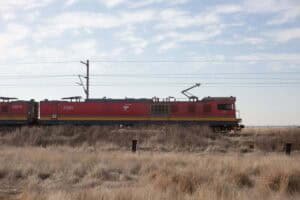The state-owned arms and defence equipment manufacturer may not be able to pay its workers in December, according to Solidarity.

Problems at Denel, the struggling state-owned arms and defence equipment manufacturer, have been exacerbated by the underfunding of the South African National Defence Force (SANDF), which finds it hard to buy new equipment from the entity, according to defence expert Helmut Heitmann.
So financially stressed is Denel that Solidarity deputy general secretary Johan Botha has expressed concern that employees may not get their full salaries and bonuses by December, with the company canvassing solutions from the trade union.
Denel has been kept afloat by the controversial R290 million unsecured loan obtained from Regiments Capital – the City of Joburg fund management company – during Parks Tau’s tenure as mayor.
Explaining why Denel faced a crisis, Heitmann cited “a combination of factors”, one of which was the underfunding of defence.
“The SANDF can neither acquire new equipment from Denel or anyone else, nor fund research and development of equipment.
“That has hit Denel’s revenue stream and has the longer-term implication of no new products.
“Another aspect is that most armed forces are reluctant to buy equipment that is not used by the forces of the manufacturing country. Complex equipment is kept in service for 20 to 30 years and they want to be sure of through-life support.
“Having it in use by the forces of the manufacturing country is seen as a guarantee of that.
“So, when the SANDF cannot buy something into service, Denel finds it difficult to export.”
Describing Denel’s current financial situation as “a catastrophe”, Heitmann said: “It is not clear what caused the implosion from a company whose situation was improving. All I can ascribe it to is poor management at the very top, corruption or both.
“One element seems to have been an unnecessary expansion of head office structures that swallowed money unproductively.
“As the problems began to manifest, some key people left the group, making it less capable of research and development. This has led to inability to meet production schedules for orders.
“As money was used for other purposes or somehow disappeared, the companies of the group could not pay suppliers…”
This in turn led to late or missed deliveries and revenue stopped flowing.
Heitmann warned that if the government could not find funds to recapitalise Denel or find foreign investors, “the Denel group will implode fairly quickly”.
“The best engineers will leave and things will then unravel very rapidly with little or no chance for recovery,” Heitmann said.
He said only the foreign-owned divisions, Rheinmetall Denel Munition and Hensoldt Optronics, would continue operating.
“Both are well-managed and doing well in the international market, and are backed by international defence groups, which gets around the problem of the SANDF not buying items from them.
“The rest of Denel will disappear, except some bits that government will have to find a way to subsidise to support equipment in service,” said Heitmann.
This will leave the SANDF with challenges in supporting its existing equipment.
“The rest of the defence industry will wind down. South Africa will have to import all of its major equipment, which will reduce our strategic freedom of action.
“This will eat into foreign currency reserves, with the country losing about R8 billion annually.”
He said the country would also lose “a key part of its high-tech sector”.
“We will lose most of the 15 000 direct jobs and perhaps another 10 000 or so indirect jobs.”
For more news your way, download The Citizen’s app for iOS and Android.
Support Local Journalism
Add The Citizen as a Preferred Source on Google and follow us on Google News to see more of our trusted reporting in Google News and Top Stories.






